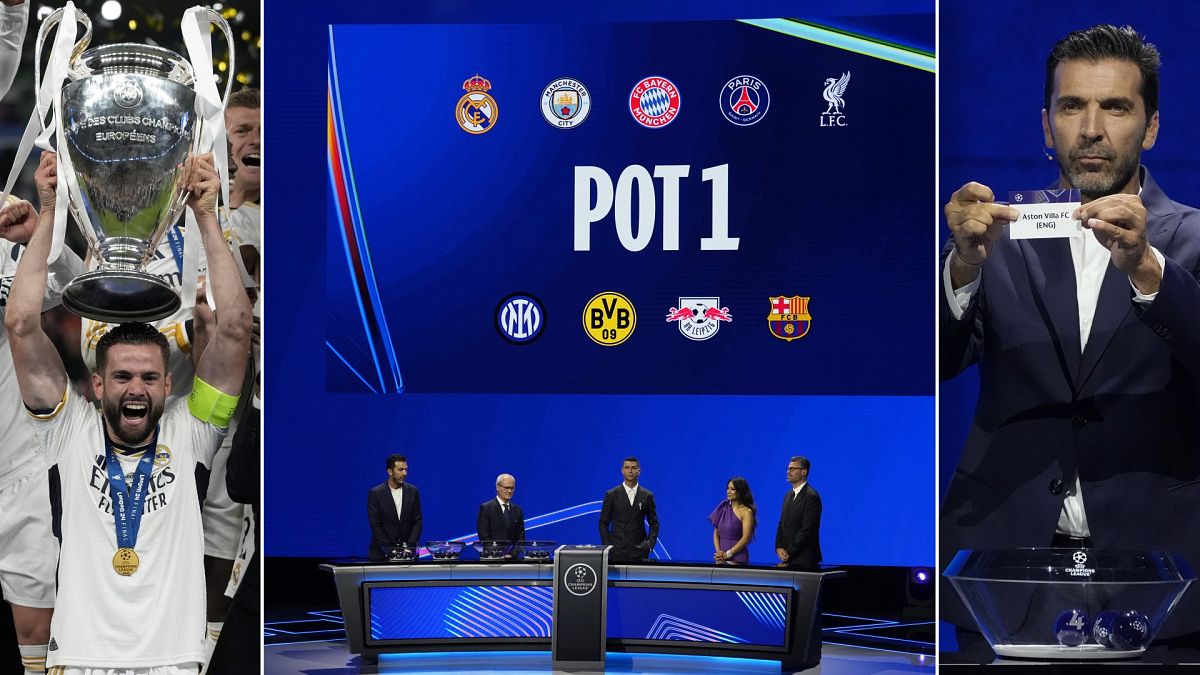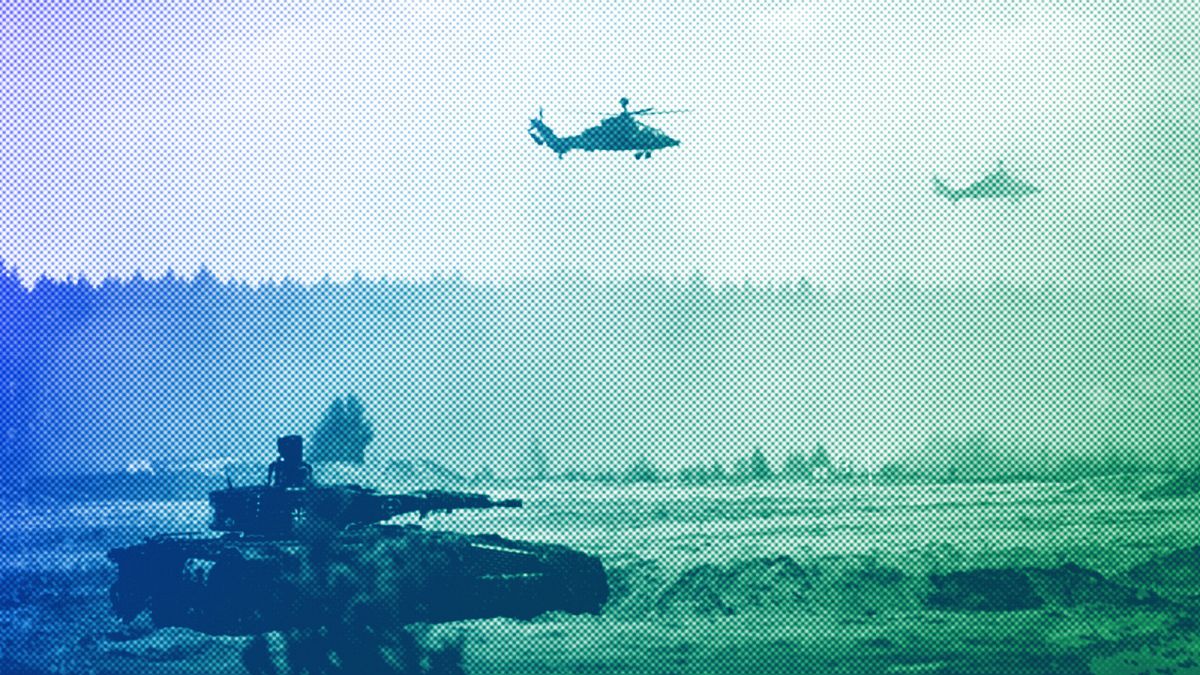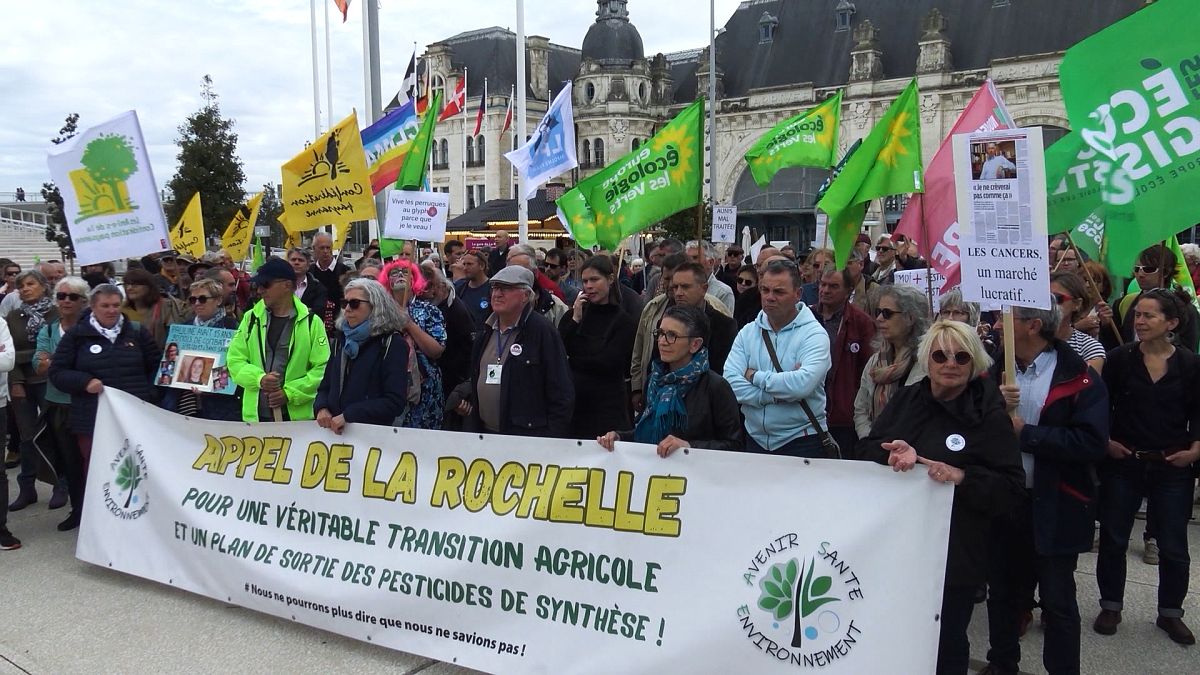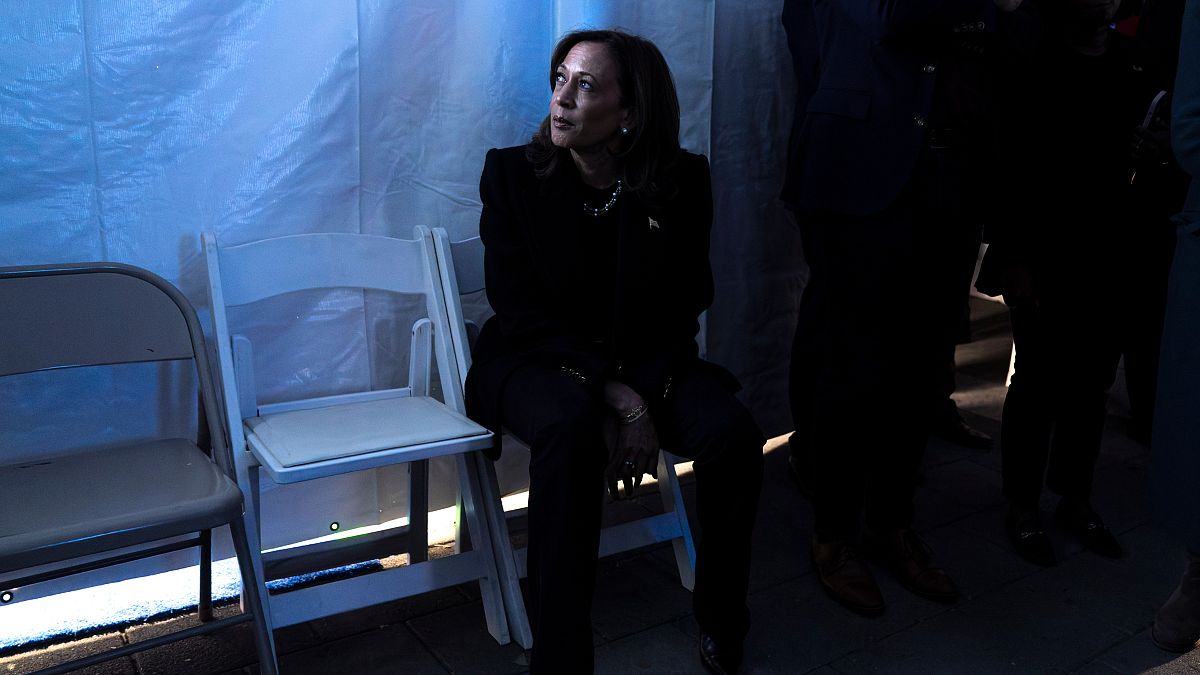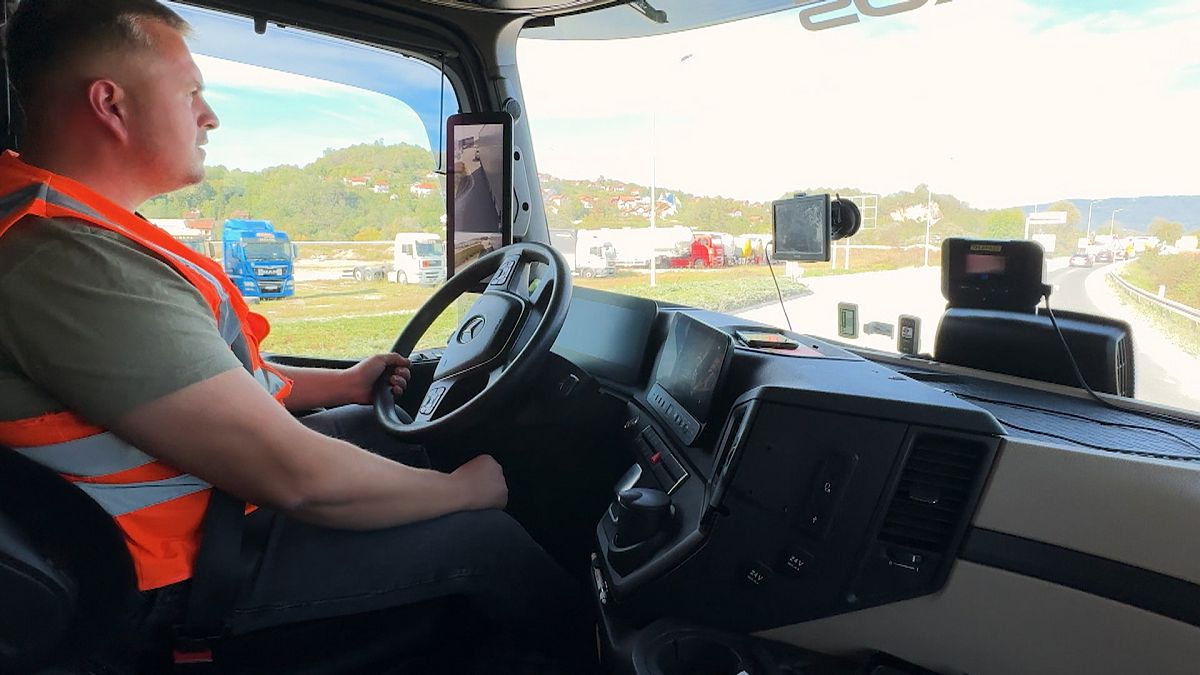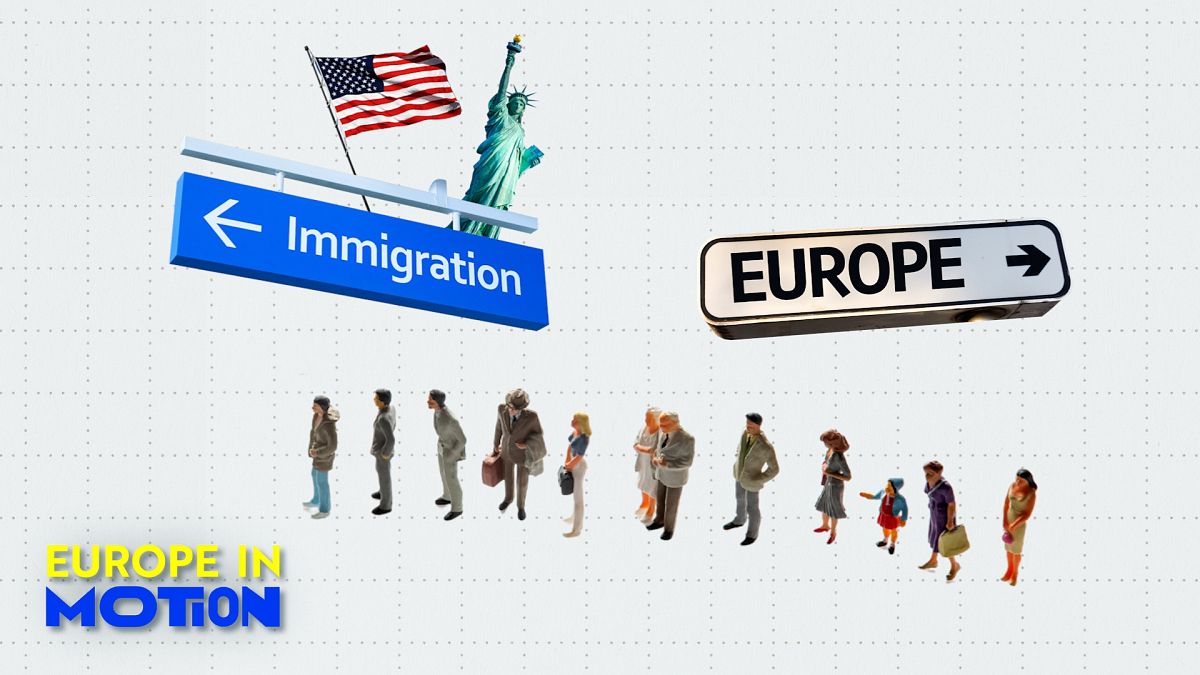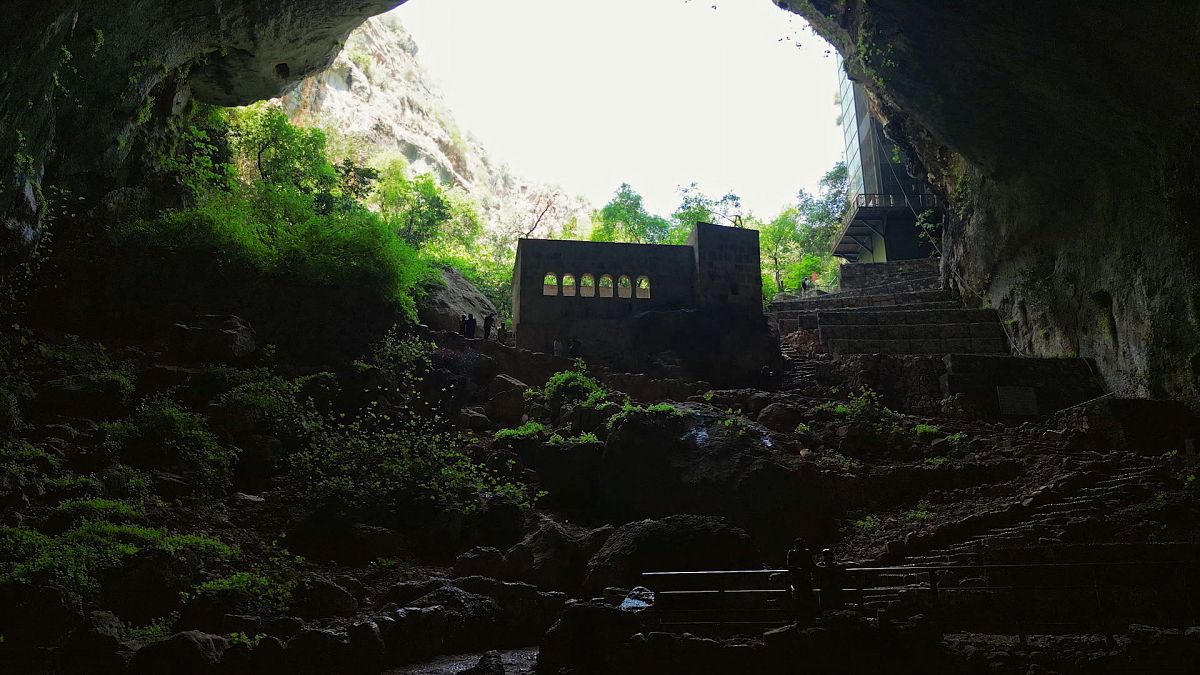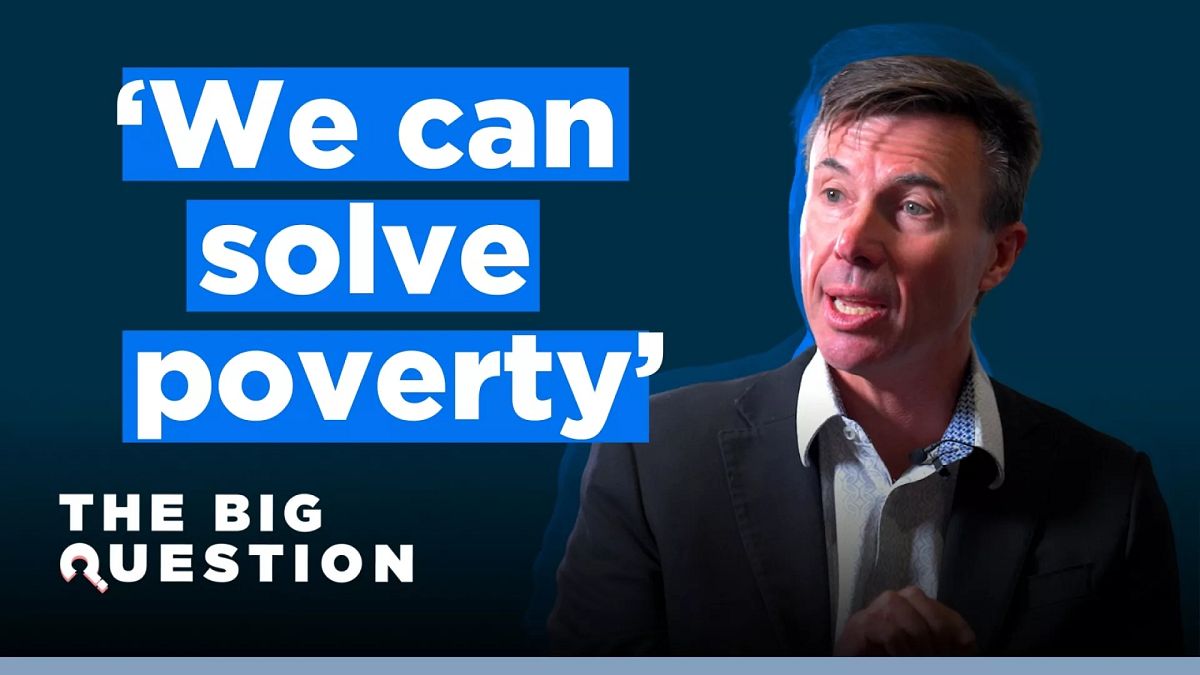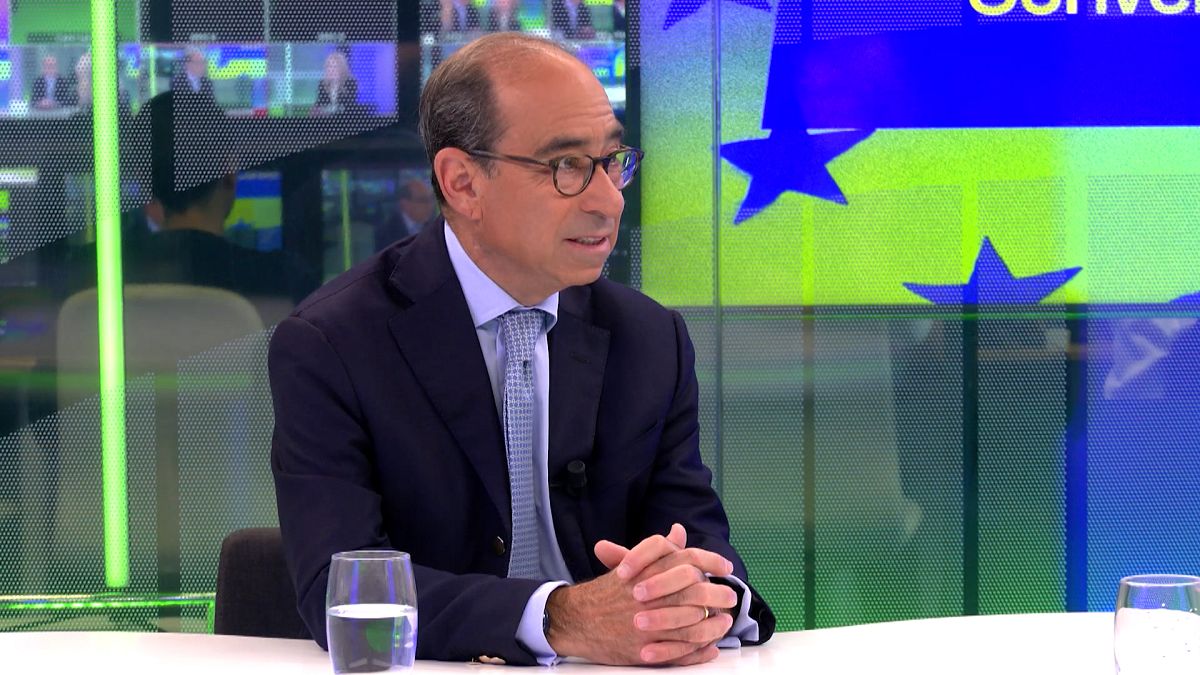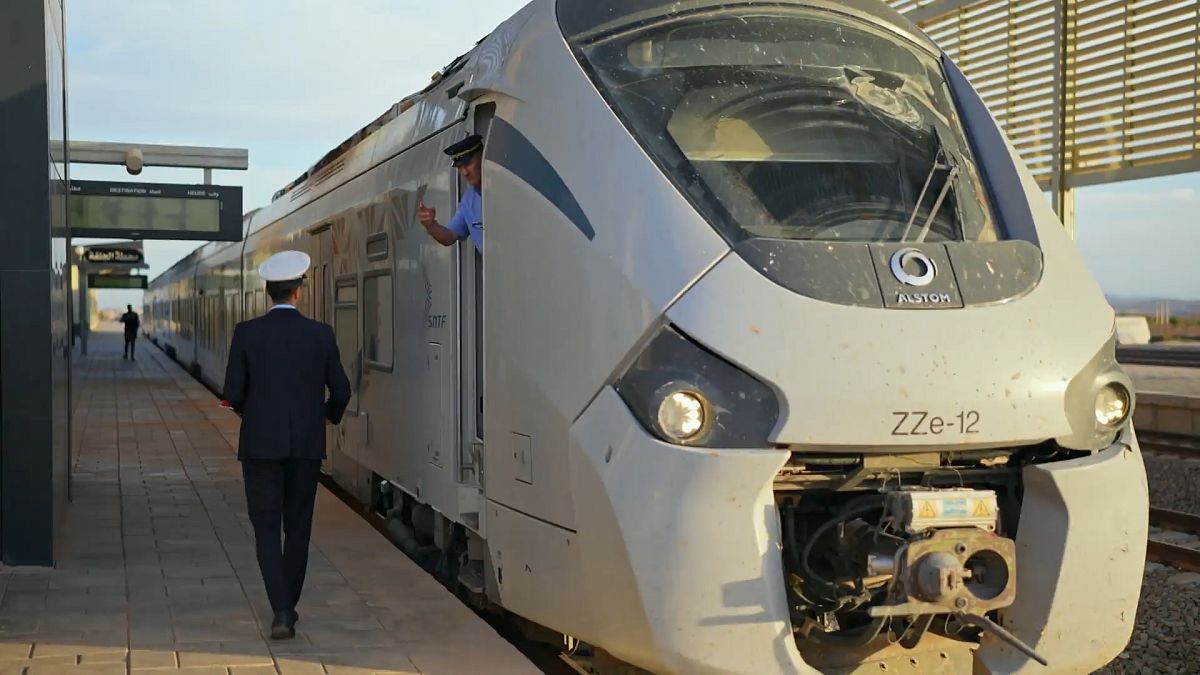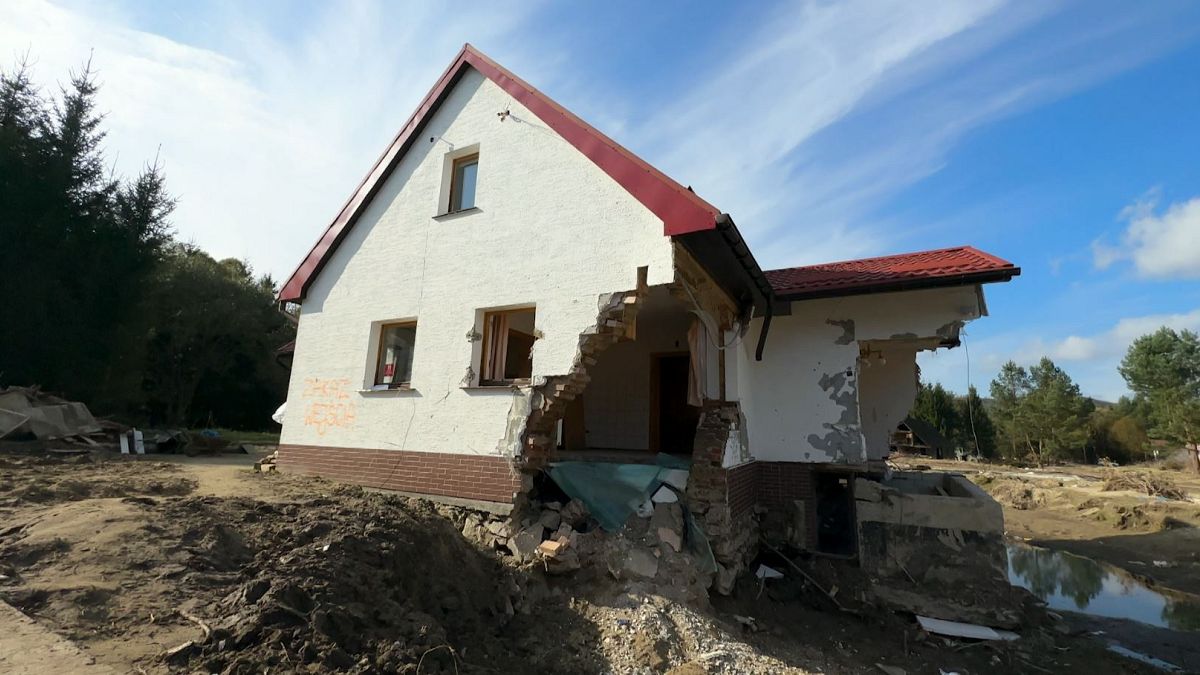Climate change displaces more people than war, says UN migration chief
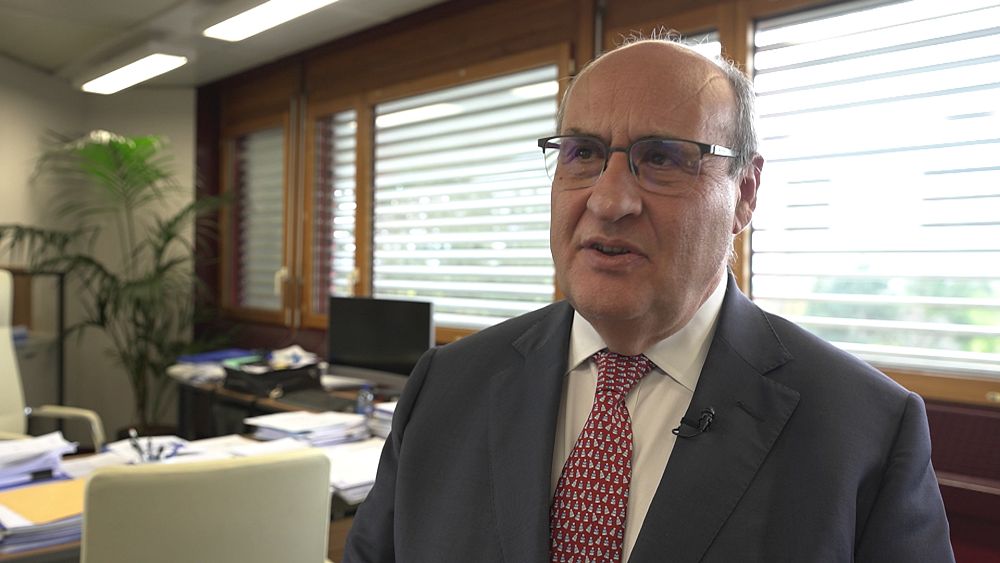
The number of asylum seekers arriving in Europe has skyrocketed in 2023. More than 40,000 undocumented people have crossed the Mediterranean Sea so far this year: one of the highest rates since the 2015 migration crisis.
The first quarter of 2023 was also the deadliest for migrants crossing the Mediterranean since 2017. Some 700 people have either died or gone missing in the first three months of the year en route.
To discuss Europe’s response to this, Euronews’ International Correspondent Anelise Borges spoke to António Vitorino, Director General of the United Nations’ International Organization for Migration (IOM).
Anelise Borges, Euronews International Correspondent: This is actually not a new, impending crisis. This is yet another chapter of a crisis that I feel like we’ve been seeing unfold in Europe for more than eight years now. What is your organisation witnessing specifically in the Central Mediterranean?
António Vitorino, Director General, IOM: “The Central Mediterranean has been a growing route to Europe, constantly. Even during the pandemic, the figures kept on the rise. And as you said, the figures of the first three months of this year are four times higher than last year – [in] the same period.
“So it’s quite clear that there are a number of travelling routes towards Europe that are arriving now, to Italy mainly. And Italy is overburdened with this pressure.”
Anelise Borges, Euronews International Correspondent: I want to read something the IOM has put out: “Delays in State-led rescues on the Central Mediterranean route were a factor in at least six incidents, or shipwrecks, this year leading to the deaths of at least 127 people. The complete absence of response to a seventh case claimed the lives of at least 73 people.” Would you say European governments have blood on their hands?
**António Vitorino, Director General, IOM:**“I believe that there is an urgent need for European Member States to take seriously a proposal that the commission itself presented in order to address the three key issues at stake.
“First, people need to be prevented from embarking on dangerous journeys and that depends on the cooperation with the countries of departure. Secondly, there is a need for a state-led initiative about search and rescue – we cannot leave that to just NGOs. And, of course, we need to prevent people from dying in the Mediterranean. And thirdly, and this is very important, there is a need to have predictability in the disembarkation points because they cannot just go to the [closest] port and there is a need to set up a swift relocation process not to overburden those countries that are geographically exposed.
Anelise Borges, Euronews International Correspondent: “It’s interesting what you say about the coordination when it comes to receiving these people… the disembarkation ports. I have not worked on this issue for as long as you, but I feel quite disheartened to see that nothing seems to change, year after year. It’s almost like I could use the same words, the same pictures, to describe the situation year after year. You understand the European Union, you have been a commissioner for the EU. Why do you think that is? Why can’t European governments come together to tackle this issue?
António Vitorino, Director General, IOM: “Well, indeed, you are right. The European Commission has put forward the proposal for a pact on asylum and migration to have a common approach and common standards among all EU member states. It’s quite clear that the progress in adopting the legal instruments of the Pact has not progressed that much. That shows that there are still differences in the perspective [of] how migration is seen by different Member States.
“But my key point is that no country alone can tackle [such] a challenge. So only [by] working together can we succeed. And for that, I think it’s absolutely necessary to have strong pressure on the European institutions and on the European Member States to come to a joint approach.”
Anelise Borges, Euronews International Correspondent: In terms of the data you collect and the areas you are monitoring specifically in Europe, are there places that are of your concern right now?
António Vitorino, Director General, IOM: “We’ve had a very serious crisis last year in Belarus on the border with Poland. And I have made it very clear that we condemn any kind of instrumentalisation of migrants and refugees by one state for political ends. These kinds of situations cannot happen again. We cannot accept [these] illusions created for people in despair, with the idea [of] simple and fast-track gateways towards another country or towards Europe.
“That’s a violation of international law, a violation of fundamental rights of migrants and refugees. And what happened last year cannot happen again.”
Anelise Borges, Euronews International Correspondent: When it comes to a positive lesson, I would say, that Europe has shown the world when addressing migration routes – and legal options for people to move – I would say the war in Ukraine has served as a good example of what can be done when countries come together and try to find a cohesive plan. But there’s been quite a lot of criticism with regard to that because some – and I am quoting activists and humanitarian workers – said that it felt like it was a double standard. When refugees look like us, when they have the same religion as us, then they are welcomed. What do you say to that?
António Vitorino, Director General, IOM: “I believe that the use of the Temporary Protection Directive that I put forward when I was the Commissioner in 2020, and was then approved, proved to be a very effective instrument of solidarity, of support. But it’s a very challenging situation because you are dealing with people traumatised by the war, people vulnerable to abuse, to exploitation, particularly women and children. And you need to find the necessary resources to support a longstanding stay in the host countries, because now we are already more than one year after the beginning of the Russian invasion and the prospects of returning to Ukraine don’t seem around the corner because people can only return when the security conditions are met in order to reconstruct Ukraine, which is going to be badly needed.”
Anelise Borges, Euronews International Correspondent: Multiple crises are compounded right now, but there is one that looms above all others: climate change. We have been talking about it for a while now, how the weather could be the number one source of displacement for people in the future. But we have some 20 million people being displaced by these phenomena every year. Do you sense governments understand the challenge ahead of them and [are] taking measures to try and come up with a system at least to accommodate these people being displaced, fleeing their homes?
António Vitorino, Director General, IOM: “There are more people displaced because of climate change than because of conflicts, in spite of the fact that in many countries there are climate vulnerable countries with conflicts inside. So the two elements play together, they interact and they are triggers of displacement.
“These people that are impacted by climate change – 20 million per year, for instance, in the last decade – these people are, for the time being, mainly internally displaced people, but sooner or later they will cross an international border and they will become, let’s say, climate migrants. And that’s why the conclusions of Sharm el Sheikh were important because for the first time, in COP27, it was recognised that climate change is already having an impact today in forcing people to be displaced and we need to provide them with lifesaving assistance and then finding durable solutions for the future.”
**Anelise Borges, Euronews International Correspondent:**But how far are we from that? I mean, because one thing is recognising, yes, indeed, there is a problem, right? But then how long until that is translated into action? And in your opinion, do we have this time?
António Vitorino, Director General, IOM: “We need to act urgently in global terms about climate change and in concrete terms to the most vulnerable regions in the world. And of course, for that, we need to bet on adaptation, mitigation and building the resilience of the communities.
“Many countries are already taking those measures, but the effort that is required goes beyond their capacity. So there is a need for a mobilisation of the international community to support those countries.”
Source: Euro News


